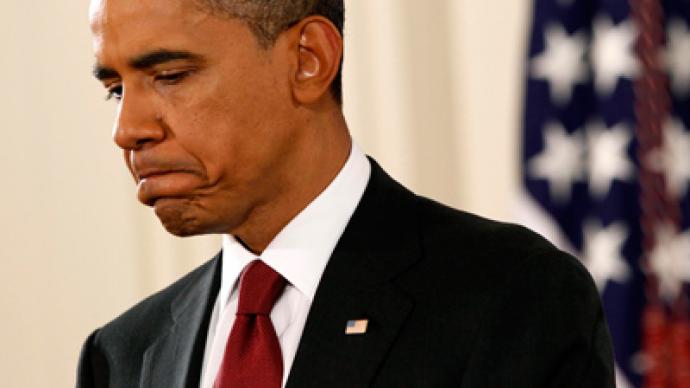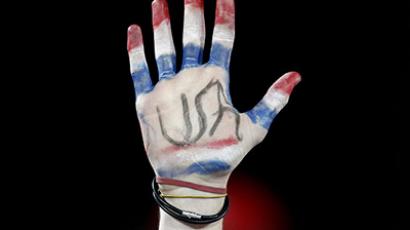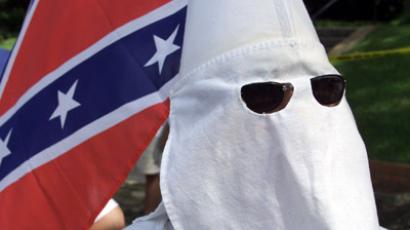Majority of Americans racist – poll

The election of Barack Obama failed to usher in a post-racial US, with a new poll showing that 51 percent of Americans hold explicitly anti-black views. That figure is up from 48 percent in 2008, the year America elected its first black president.
Those expressing implicit anti-black attitudes also spiked from 49 percent to 56 percent over the same four-year period, the Associated Press found in a poll released Saturday.Racial prejudice against blacks cut clearly across America’s left-right political divide, despite perceptions to the contrary. While 79 percent of Republicans willingly expressed racial prejudice when answering questions measuring explicit racism (as opposed to 32 percent among Democrats), the implicit racism test showed that a majority of Republicans (64 percent) and Democrats (55 percent) held implicit anti-black feelings.According to the survey, political independents were the least racist, with 49 percent exhibiting implicit anti-black feelings. The poll also found that a majority of respondents (57 percent) held implicitly negative views about Hispanics, up 51 percent from an AP poll taken last year. All of the surveys were conducted online, with research showing that the likelihood of respondents expressing taboo opinions increased when the poll was taken on a computer, as opposed to speaking with an interviewer.The explicit racism component of the test asked respondents if they agreed or disagreed with a series of statements concerning blacks and Hispanics. The survey also asked how they associated blacks, whites and Hispanics with a range of adjectives including 'friendly,' 'hardworking,' 'violent' and 'lazy.'The implicit test entailed showing the same respondents a neutral image of a Chinese character on the screen. The image of a black, white or Hispanic male would flash immediately before the character appeared. Respondents were then asked to rate their feeling towards the Chinese character, with previous research suggesting that people transfer their feelings about the photograph onto the character. The technique is described by psychologists as 'affect misattribution.'In this way, researchers believe they can measure racist sentiments the respondent might be harboring, even if they are consciously or unconsciously suppressed.Further questions regarding the respondents’ age, political views, opinions towards Obama or Republican presidential contender Mitt Romney and other facts were used to determine who the poll-taker was likely to vote for in the upcoming election.If the poll accurately reflects the state of race in modern-day America, Obama could be facing a five-percentage-point loss of the popular vote come Election Day on November 6. However, pro-black attitudes could give him another three-point boost, resulting in a net two-point loss.A Washington Post-ABC News national tracking poll released on Wednesday found that November’s election will likely be the most racially divisive since 1988, with Obama lagging behind Romney 38 to 59 percent among white voters. At this stage in 2008, John McCain led Obama by 8 points among whites, with Obama ultimately losing the white vote by 12 percentage points.Obama’s greatest losses are amongst white men. In 2008, exit polls showed that Obama lost the white male vote by 16 points. This year, Obama trails Romney by 33 percent, over double that margin.Democratic candidate John Kerry lost white voters to Republican George W. Bush by a comparable margin in the 2004 presidential election – 58 to 41 per cent – which was enough to cost him the election.The poll results will likely do much to deflate previous hopes that Obama’s election represented the advent of a post-racial stage in American history.














